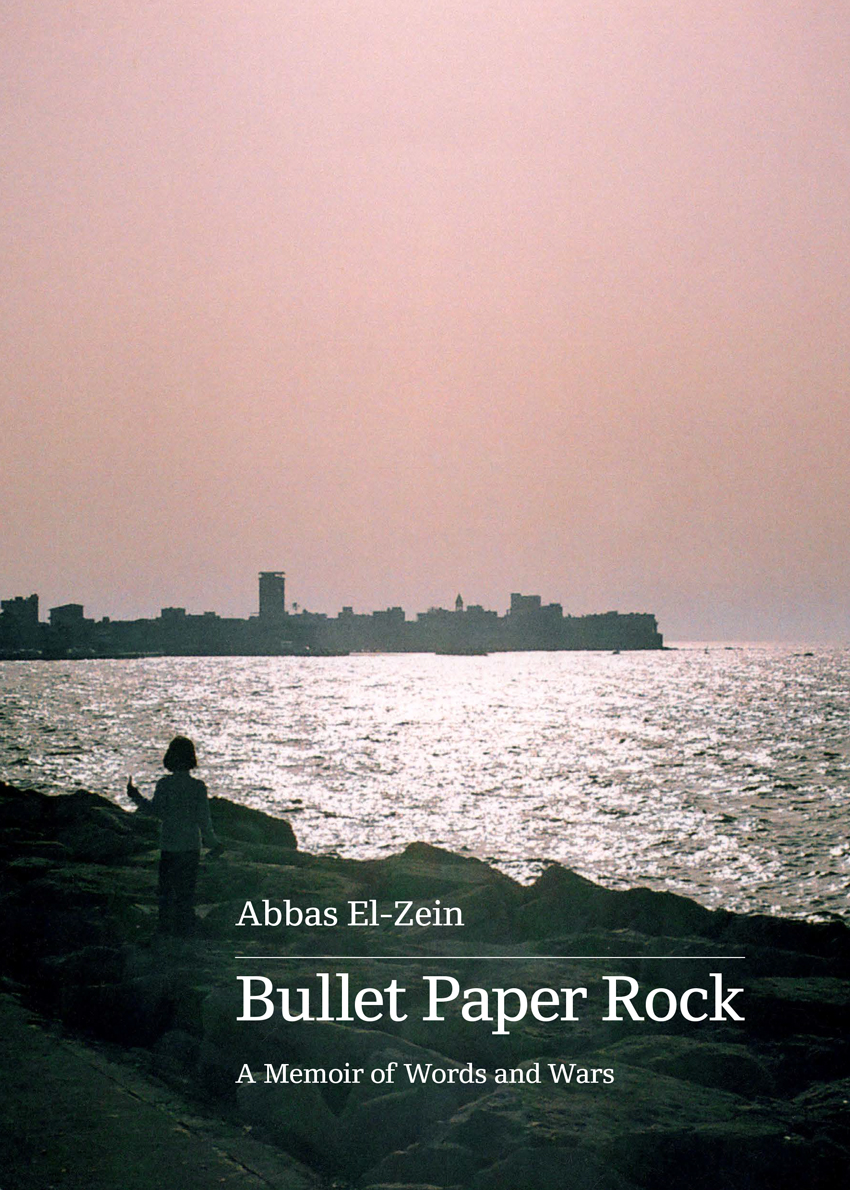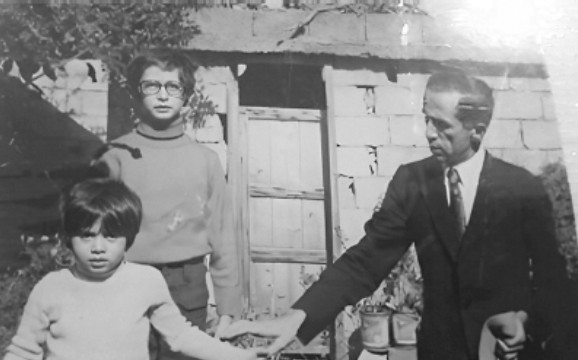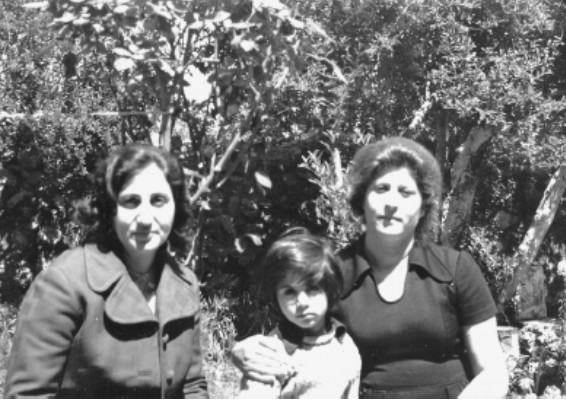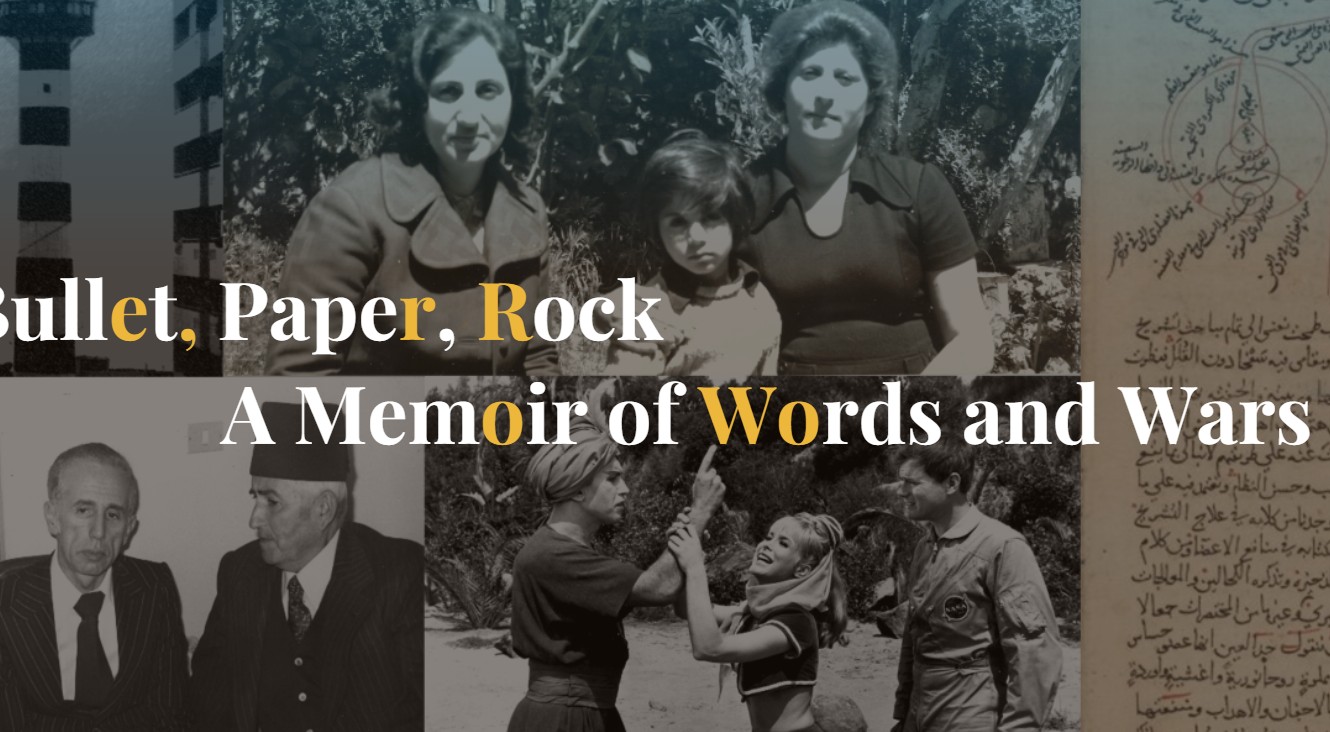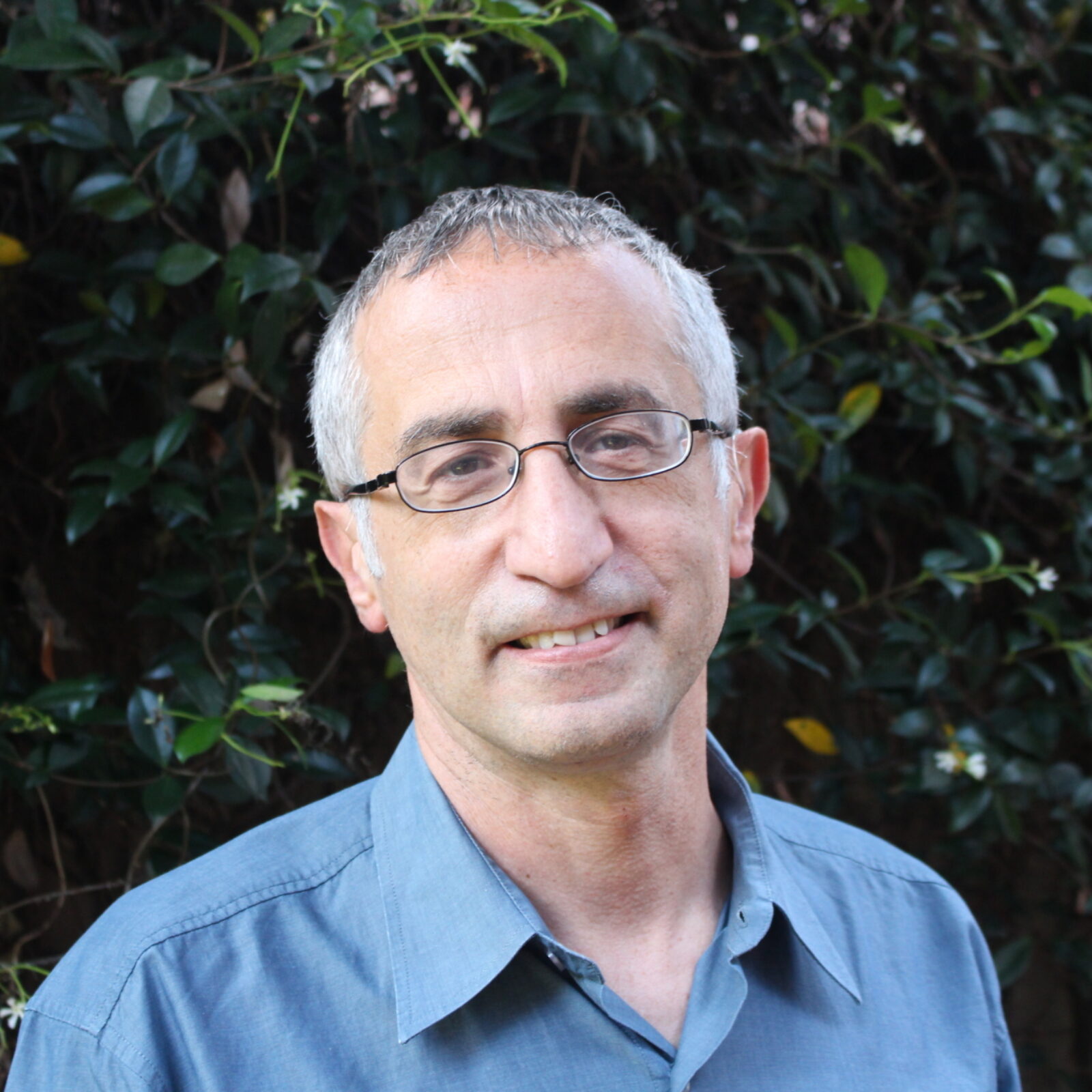In this episode of Biographers in Conversation, author and academic Abbas El-Zein chats with Dr Gabriella Kelly- Davies about his choices while crafting Bullet, Paper, Rock: A Memoir of Words and Wars.
Abbas won the 2025 National Biography Award for his memoir.
Bullet, Paper, Rock charts Abbas El-Zein’s life through war, loss and migration, anchored by his enduring love of languages. The judges praised his luminous prose that used a serious yet often intimate and playful voice to meticulously represent major historical moments across a vast geopolitical landscape, as well as explore ‘lexicons of love’ and the ways in which language shapes identity.
Senior Judge Sylvia Martin said:
‘The judges were unanimous in choosing Bullet, Paper, Rock as the winner of this year’s award. Abbas El-Zein’s extraordinary memoir stood out in a diverse and creatively original field for the way it covers a vast terrain in a unique narrative style of short, dazzling “literary forays”. He has produced a singular literary achievement: a vitally important geopolitical story worth reading for the luminous and precise quality of the prose alone.’
Bullet, Paper, Rock
Bullet, Paper, Rock guides us through Abbas’s youth in Lebanon, where he came of age amid civil war and personal loss. By the time he graduated from high school, he had survived the outbreak of a civil war, lost two close family members to violent events and witnessed Syrian and Israeli armies invade his country. From his bedroom balcony, he saw the mushroom cloud of a devastating explosion that killed hundreds of peacekeepers.
Yet amid these tragedies, everyday life persisted, rich with humour, serendipity and love. Bullet, Paper, Rock shows war and tragedy striking at intervals, while family dinners, school days and jokes with friends continued in between.
Bullet, Paper, Rock is more than a war memoir. It’s a story of survival that also meditates on longing and loss, language and violence. Its title echoes the childhood game ‘rock, paper, scissors’, but with a twist. As one reviewer noted, the title captures ‘with exquisite and jarring concision how war punctuated Abbas’s youth and continues to reverberate through his life’.
Bullet, Paper, Rock Cover Image
Abbas suggested to his publisher one of his own photographs as material for designing the book’s cover, an image titled ‘Red Sky over Tyre’. It depicts a red-hued sky over the Lebanese city of Tyre, a moment of eerie beauty amid turmoil. The glow of sunset evokes something fiery and beautiful, while the Mediterranean shimmers between rock, sky and cityscape.
Bullet, Paper, Rock Opening Scene
Abbas draws readers into Bullet, Paper, Rock with a dramatic opening scene: a chapter titled ‘Ever After’, in which he nearly drowned in the Mediterranean as a young boy. Abbas explained that the opening chapter foreshadows some of the themes of the book: love, fear, language, death, survival and the ever-present Mediterranean sea.
That near-death experience becomes a kind of metaphor for the unpredictable dangers that would follow in Abbas’s adolescence. It’s a beginning that immediately signals to the reader what’s at risk and sets the tone for the rest of the story. Abbas experimented with other ways to begin his narrative, but he chose the drowning scene for its visceral impact and resonance as a moment that stayed with him ‘ever after’.
Bullet, Paper, Rock Structure
The structure of Bullet, Paper, Rock is unusual for a memoir. Instead of a straightforward chronological tale, Abbas composed his life story in a series of short, fragmentary sections he named ‘literary forays’ or vignettes that jump in time and place. He embraced a nonlinear approach because memory itself is nonlinear and often fragmented. We remember certain vivid moments in sharp detail while others blur or fade. By arranging the book as a mosaic of recollections, Abbas could focus on the most pivotal moments of his life without filling in every minor detail in between.
Abbas El-Zein’s memoir is a work of rare linguistic and emotional insight, and a tribute to the resilience of the human condition.
Judges of the National Book Award, 2025
The result is a memoir told through meticulously crafted vignettes that collectively chart a remarkable journey shaped by war, migration and love. This fragmented structure gives the story a lyrical, almost collage-like quality. Readers might leap from a childhood scene in 1970s Beirut to a reflective passage set decades later, then back again, much as one’s mind darts through memory.
Abbas El-Zein’s mother, Zakieh Sharafeddine (right), with his father’s cousin Naziha and youngest brother Hekmat (Circa 1974)
Abbas wrote his recollections as an adult looking back, but he also wanted to capture the immediacy of his younger self’s perspective. In some scenes, he allows the child or teenage voice to come through. Some examples are the bewilderment of a boy hearing bombs in the distance, or the dark humour a teenager might use to cope with fear. Then, in other moments, his adult narrating voice steps in to reflect on those experiences with the benefit of hindsight.
Striking this balance wasn’t easy. Abbas explains how he experimented with tense and perspective: at times narrating events in the present tense to put the reader right in the moment, and at other times using the past tense with a more reflective tone. To the reader, the voice feels intimate, authentic and ‘often playful’ even when writing about serious themes. This mix of immediacy and reflection helps bridge the gap between the child he was and the man he is now, making the story accessible and heartfelt.
One of the most compelling aspects of Bullet, Paper, Rock is how it shifts between scenes of conflict and moments of humour or tenderness. Abbas says the civil war in Lebanon was not an all-out war, everywhere, at all times. Normal life continued in many different ways, accommodating the war, but never surrendering to it. This allowed the kind of stories shared in the book to emerge even amid war.
The judges of the 2025 National Biography Award noted this quality, praising how major historical events in the book are ‘woven with pop cultural references and familial idiosyncrasies’. Abbas interweaves catastrophic events such as invasions and bombings with the trivial details of daily life. This interplay minimises the distance between reader and writer. We come to see the war not as an abstract history lesson, but as a lived experience full of relatable human moments. Abbas’s ability to find slivers of light in the darkness gives Bullet, Paper, Rock a warmth and humanity, without undercutting the seriousness of what happened.
Language as a Powerful Motif
Language emerges as a powerful motif in Bullet, Paper, Rock. Abbas grew up speaking Arabic at home and French at school, and he later adopted English as his primary language when he moved abroad. During our conversation, he reflects on how this trilingual background became part of his identity and writing voice.
In Lebanon’s post-colonial society, French and Arabic often coexisted uneasily. They were two languages vying for primacy in daily life. Young Abbas might speak Arabic with his family, then switch to French textbooks in the classroom, all while the English language loomed on the horizon through global media.
In Bullet, Paper, Rock, Abbas weaves in Arabic and French words and sensibilities, giving readers a taste of his linguistic world. One example is that the Arabic language has many nuances for the word love, each with a different shade of meaning. In fact, some of the memoir’s most moving passages explore the Arabic vernacular for love, an affectionate homage to the language of his childhood.
Abbas El-Zein speaks about the things that matter most to everyone.
Robert Dessaix
Writing these sections in English was a creative challenge. Abbas had to find ways to translate not just words, but cultural feeling to convey, for instance, the tenderness of an Arabic term of endearment or the formality of a French expression in ways an English reader could understand. He approached this by providing context and sometimes gentle explanation within the narrative, so that even if a reader doesn’t know a word in Arabic or French, its emotion and significance are palpable.
Through this multilingual tapestry, what emerges is a sense of the relationship between language and identity, how politics and culture can shape the languages we speak, and how in turn, language shapes who we are.
Bullet, Paper, Rock Reviews
Bullet, Paper, Rock: A Memoir of Words and Wars, Sydney Review of Books
Bullet, Paper, Rock, State Library of New South Wales, Judges’ Comments, 2025 National Biography Award
Bullet Paper Rock, reviewed by Laurie Steed, Writing WA, September 2024.
Bullet Paper Rock, reviewed by Declan Fry, ABC News, April 2024.
Praise for Bullet, Paper, Rock
Bullet, Paper, Rock is a kind of wonder-room of glimpses of childhood and youth in Lebanon, of family entanglements, migration, war and above all language, the trilingual man’s love affair with language. The writer’s English is startling in its serenity and precision against a seething background of loss and calamity, at once personal and universal. Abbas El-Zein speaks about the things that matter most to everyone. His voice is not one you will easily forget.
Robert Dessaix
The title captures, with exquisite and jarring concision, how war and conflict punctuated Abbas El-Zein’s childhood and youth in Lebanon and how they continue to reverberate through his life in Australia
Cameron Woodhead and Fiona Capp, Sydney Morning Herald
His is a rare voice – gentle, warm and humorous yet precise in its forensic eye for the details that resonate.”
Judges: Queensland Non-Fiction Literary Award, 2024
…by turns devastating, witty and deeply moving…El-Zein’s writing is a dazzling combination of precision and playfulness. Bullet, Paper, Rock is a work that shimmers, shapeshifts and beckons the reader to follow.”
Judges: Douglas-Steward Prize for Non-Fiction, NSW Literary Awards, 2025
Abbas El-Zein’s memoir is a work of rare linguistic and emotional insight, and a tribute to the resilience of the human condition. Through a series of meticulously crafted vignettes, El-Zein charts a remarkable life shaped by war, loss, migration and love. What distinguishes this autobiography is the way that the author combines serious themes and a wide geographical scope with a voice that is intimate and often playful. Major historical moments are woven with pop cultural references and familial idiosyncrasies, minimising the distance between reader and writer.
Judges: National Book Award, 2025.
Bullet, Paper, Rock Media Interviews
Bullet, Paper, Rock: A Memoir of Words and Wars, Sydney Review of Books
Canberra Writers Festival, ‘A conversation about memory and fable’, ABC RadioNational Memory and Fable panel, (ABC RN)
Bullet, Paper, Rock: Abbas El-Zein’, State Library of NSW
Bullet, Paper, Rock: ‘Abbas El-Zein with Molly Murn’, Adelaide Writers’ Week Podcast (available on Spotify and Apple Podcasts)
Abbas El-Zein has published essays and articles on war and violence, identity and displacement. His work has appeared in HEAT Magazine, The Guardian, The New York Times, The Age, The Sydney Morning Herald, Meanjin and Australian Book Review, among others. His novel, Tell the Running Water, is a coming-of-age story set in civil-war Beirut. His memoir, Leave to Remain, is an autobiographical meditation on war, identity and East-West relations. The Secret Maker of the World is a collection of short stories about violence, justice and loss, set in different continents and eras. His latest book, Bullet, Paper, Rock: A Memoir of Words and Wars is a story of survival and a reflection on language and desire, amid the upheavals of war, the Arab Spring and the Israel-Palestine conflict.




